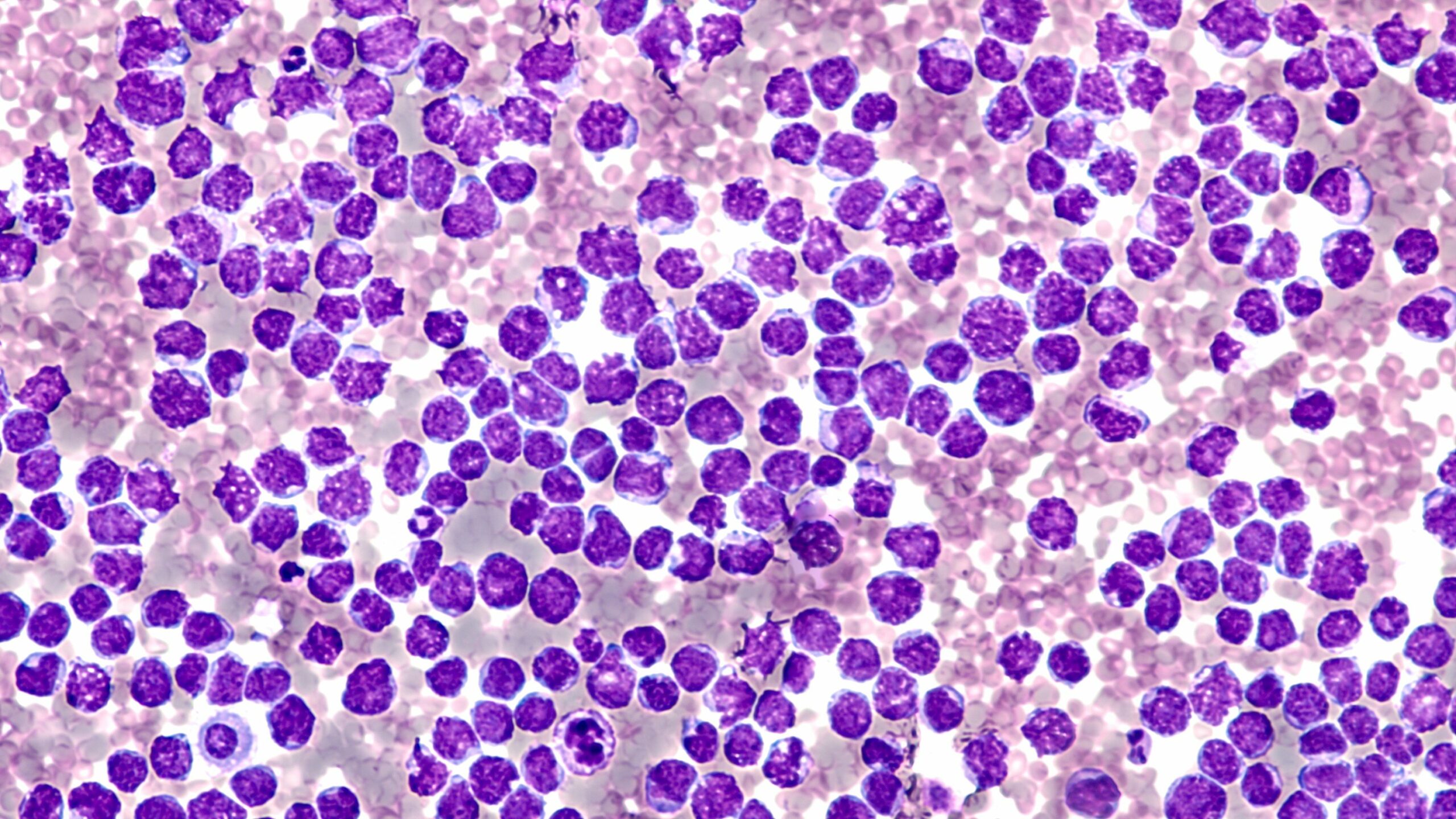Could exploiting AML’s weaknesses lead to new treatments?
What if revealing the role of one protein could accelerate progress towards new AML treatment? Targeting proteins that make changes to RNA is showing potential as a new class of cancer drug – could the RNA-modifying protein CTU2 be next?

As part of his John Goldman Fellowship Follow-up Fund award, Dr Konstantinos Tzelepis, University of Cambridge, aims to exploit a novel weakness in acute myeloid leukaemia (AML) to drive progress towards new treatment for the disease.
 The challenge
The challenge
Each year, over 3,000 people are diagnosed with acute myeloid leukaemia (AML). Devastatingly, just 15% of patients survive longer than five years after their diagnosis. Despite greater scientific understanding of the disease, the mainstream treatments haven’t changed in decades. Kinder, more effective ways to treat AML are urgently needed.
The science behind the research
In previous research, Dr Konstantinos Tzelepis and his research team used a powerful genetic screening tool to find weaknesses in AML cells, which could be potential targets for treatment.
In this study, the researchers will embark on an exploration of one of these potential vulnerabilities – CTU2 – a protein involved in making modifications (changes) to RNA (a vital molecule for many of the processes that happen inside cells).
It’s predicted that CTU2 could play an important role in AML and this research aims to bring that to light. Newly developed research tools, lab models and scientific expertise will be used to:
– Reveal the role of CTU2 in AML growth and survival
– Confirm its importance in AML cells vs. normal blood cells
– Determine if there’s potential to block CTU2 as a possible way of treating AML
Dr Tzelepis and his team have already made progress in this field of research with two similar proteins involved in making changes to RNA – METTL1 and METTL3. Based on their important research, a cutting-edge clinical trial is now testing a first-of-its-kind new drug to block METTL3.
What difference will this research make?
Dr Tzelepis’ previous research has shown strong proof of concept that proteins responsible for making changes to RNA can make good targets for cancer treatment.
It’s hoped that this research will improve understanding of the role of CTU2 in AML and therefore ultimately help develop new and improved treatments for the disease in the future.
The findings could not only help lay the foundations for future AML treatment, but may also have benefit for other blood cancers and beyond.
